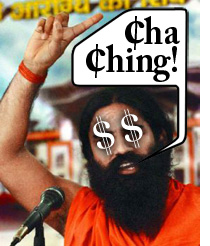
Neoliberalism and Hindutva - Fascism, Free Markets and the Restructuring of Indian Capitalism
Wednesday, 29 October 2008
Shankar Gopalakrishnan
Over the 1980s and 1990s we witnessed the simultaneous rise of two reactionary political projects, Hindutva and neoliberalism, to a position of dominance in India. Such a combination is not unusual, in that neoliberalism is usually allied with and promoted by socially reactionary forces (such as the hyper-nationalism of the "bureaucratic-authoritarian" dictatorships in Latin America, the implicit racism and jingoism of Thatcher and Reagan, etc.). Yet the Indian experience, while sharing this broad tendency, also contains some very distinct characteristics. We on the left have tended to understand this simultaneous rise as a straightforward cause-effect relationship. Hindutva is seen as an effort by neoliberalism, or perhaps more broadly by capitalism, to divert attention from class conflict, to divide and weaken working class struggles and to deflect class-driven anxieties on to minority communities. This approach is problematic in two senses. First, it does not explain why Hindutva organisations are able to develop a mass base, except to the extent that they are seen to be appealing to "historical identity" or "emotive" issues. This is undoubtedly true. But it is also insufficient, for by definition any right wing project will appeal to "emotions"; it does not take our understanding of the actual appeal of Hindutva forward. Second, it fails to provide us much understanding of why this specific historical conjuncture has taken place. Hindutva is seen as simply an "available" reactionary ideology that capital has picked up for its purposes...read more

No comments:
Post a Comment